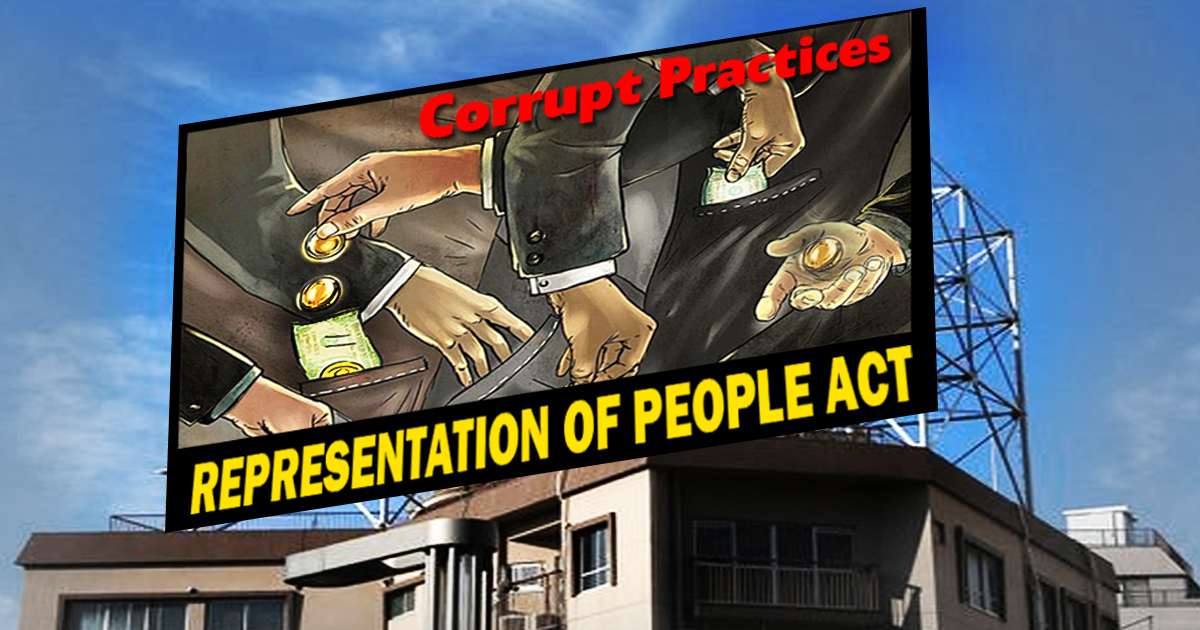
What is the Representation of People Act, 1951?
The electoral framework in India is regulated by specific sections within the Indian Constitution, namely Articles 324 to 329 of Part XV.
These provisions empower the Parliament to formulate legislation pertaining to both national and statelevel elections.
Article 324 specifically establishes the Election Commission of India as the custodian of democratic integrity, tasked with ensuring transparent and equitable electoral processes.
In alignment with these constitutional provisions, Parliament enacted the Representation of the People Act (RPA) in 1950 and its subsequent amendment in 1951.
These Acts delineate the procedures for conducting elections to the Parliament and State Legislatures, including criteria for eligibility and disqualification for legislative membership.
Moreover, they outline protocols for election conduct and provide mechanisms for resolving electoral disputes and uncertainties.
What happened in the present case?
In the case of ‘Anugrah Narayan Singh v. Harsh Vardhan Bajpayee’, a panel of the Supreme Court deliberated on a petition challenging a 2017 judgment from the Allahabad High Court.
The High Court’s decision dismissed a petition with a similar title, seeking to invalidate the election of a Member of the Legislative Assembly (MLA).
However, the Supreme Court declined to intervene in the High Court’s dismissal order. The petition contended that the MLA engaged in corrupt practices as outlined in Sections 123(2) and 123(4) of the Representation of the People Act, 1951.
The Allahabad High Court, in its ruling, determined that discrepancies or omissions regarding the educational qualifications of the respondent did not constitute undue influence on the voters.
What are corrupt practices under the RPA, 1951?
Section 123 of the Representation of the People Act delineates various actions classified as corrupt practices, encompassing bribery, undue influence, dissemination of false information, and the incitement of hostility by a candidate.
Specifically, Section 123(2) addresses undue influence, defining it as any direct or indirect action by a candidate that interferes with the free exercise of electoral rights. This includes tactics such as coercion, intimidation, social isolation, or threats of harm or expulsion from social groups.
Section 123(3) prohibits candidates from exploiting their race, caste, community, or language to solicit votes, aiming to prevent electoral campaigns based on divisive identity politics.
Furthermore, Section 123(4) broadens the scope of corrupt practices to encompass the deliberate dissemination of false statements intended to sway the outcome of the candidate’s election, safeguarding the integrity of the electoral process.
Under the provisions of the RPA Act, an elected representative can be disqualified if convicted of offences such as:
• On grounds of corrupt practices
• Failing to submit election expenses
• Interests in government contracts or works
What practices has the court held as corrupt practices in the past?
In 2017, the Supreme Court ruled that an election could be invalidated if votes were solicited based on a candidate’s religion, race, caste, community, or language, in accordance with Section 123(3) of the Representation of the People Act.
In the landmark 1994 case of SR Bommai v. Union of India, the Supreme Court emphasized the separation of religion from state affairs, asserting that religious considerations should not influence secular activities undertaken by the government.
Back in 1955, in Jamuna Prasad Mukhariya v. Lacchi Ram, the Supreme Court upheld the constitutional validity of Section 123(3), underscoring the importance of preventing electoral campaigns based on divisive identity politics.
In 2022, the Supreme Court directed a threejudge bench to revisit its 2013 ruling in S. Subramaniam Balaji vs State of Tamil Nadu. In this case, the court determined that promises of freebies could not be classified as corrupt practices, indicating a nuanced approach to electoral regulations.
 Chinmaya IAS Academy – Current Affairs Chinmaya IAS Academy – Current Affairs
Chinmaya IAS Academy – Current Affairs Chinmaya IAS Academy – Current Affairs
